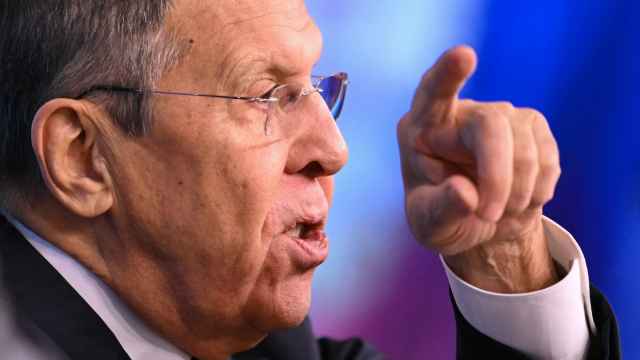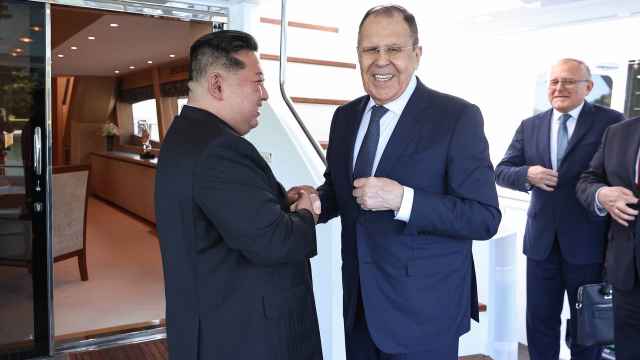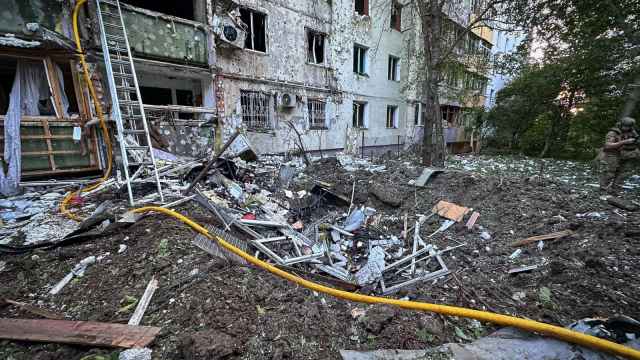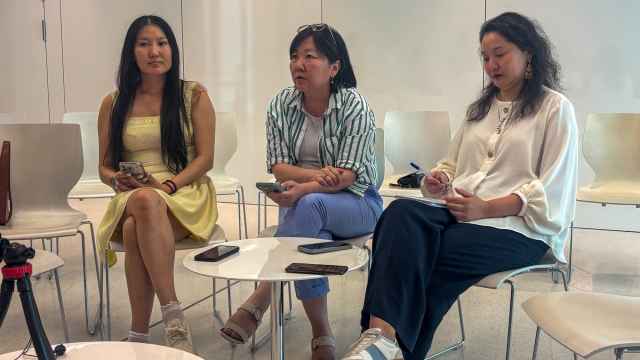Russia is urging the Group of 20's policymakers to remove barriers to long-term investment in developed countries to help emerging economies counter capital inflows as the United States pumps $600 billion into its economy.
The proposal would offset the money flooding into emerging markets by creating an “oncoming flow” of capital to industrialized nations, said Arkady Dvorkovich, senior economic adviser to President Dmitry Medvedev, at a Moscow briefing before the G20 summit, which began Thursday in Seoul.
“Large-scale, cross-border investments can serve exactly to stabilize the situation,” Dvorkovich said. “They will, in effect, replace investments into sovereign securities of the developed countries and help regulate the imbalances that appear as a result of high deficits and surpluses.”
Russia is trying to forge an alternative to devaluations and capital controls by developing nations seeking to prevent hot money from creating asset bubbles, said Yaroslav Lissovolik, chief economist at Deutsche Bank in Moscow. Interest rates close to zero in advanced economies have spurred demand for higher-yielding assets in countries from Brazil to Thailand.
The government on Thursday criticized unilateral currency devaluations, saying they may trigger “currency wars” because markets will react with “nervousness.”
“Indirect weakening” of currencies in developed nations that pump liquidity into their economies poses a “serious problem,” a member of the Russian delegation in Seoul told reporters while declining to be identified because the official wasn’t cleared to speak to the media.
Protectionist Barriers
The U.S. Federal Reserve fueled concern in emerging economies last week when it announced plans to buy $600 billion of long-term government bonds to reduce borrowing costs and spur growth in a second round of so-called quantitative easing.
China took steps this week to stem inflows that threaten to drive up stock and property prices. South Korea may revive a 14 percent tax on domestic treasury and central bank bonds held by foreigners to curb foreign-exchange volatility, a ruling party lawmaker said Wednesday.
“From the point of view of coping with the problem of global imbalances, too much emphasis has been placed on currency rates,” Lissovolik said. “Structural measures, including those aimed at lowering protectionist barriers, are more appropriate in helping find a lasting solution.”
U.S. FDI Shrinks
Capital flows into emerging markets are running at $575 billion a year, 20 percent higher than before the world financial crisis, Goldman Sachs said in September.
Meanwhile, foreign direct investment in the United States shrank to 0.9 percent of gross domestic product in 2009 from 2.3 percent a year earlier, data compiled by Bloomberg show. That compares with 3 percent in Russia and 2.6 percent in India.
Regulatory hurdles in the United States serve to discourage countries like China from seeking acquisitions, Dvorkovich said during the Moscow briefing.
CNOOC, the Hong Kong-listed unit of China’s largest offshore oil and gas explorer, abandoned an $18.5 billion bid for California-based Unocal Corp. in 2005 because of opposition from U.S. lawmakers.
The British government warned in 2006 that any bid from Gazprom for Centrica, Britain’s biggest energy supplier, would face rigorous tests about its affect on energy security. Canada last week blocked Melbourne-based BHP Billiton’s $40 billion hostile bid for Potash Corp. of Saskatchewan, saying it didn’t provide a “net benefit” to the country.
Global Imbalances
The G20 has to counter “trade protectionism,” according to a statement issued Wednesday by South Korean President Lee Myung-bak’s office after he met with Medvedev. G20 leaders pledged to resist protectionism in June when they met in Canada.
The Russian proposal fails to address global imbalances that result from insufficient demand in emerging markets, said Neil Shearing, a senior emerging market analyst at Capital Economics in London.
“Inflows of FDI would tend to increase the supply potential of the developed world rather than boost demand” in emerging economies, he said. “There is already an overhang of supply in the West. Why the need for further investment?”
Russian Barriers
While Russia is campaigning to open markets in North America and Western Europe, it has the most protectionist trade policies in the G20, according to a June 20 report compiled by the Washington-based Peterson Institute for International Economics and released by the International Chamber of Commerce.
The United States was second, followed by India, Argentina, Brazil and China. Countries took steps to shield industries from international competition as job losses rose and the European sovereign-debt crisis damped growth, according to the report.
Russia has imposed tariffs on imported cars and limited poultry imports from the United States by reducing permissible chlorine levels. Wood-export duties opposed by paper companies such as Helsinki-based Stora Enso are the main remaining “sticking point” in Russia’s talks to join the World Trade Organization, European Trade Commissioner Karel De Gucht said Nov. 9.
While Russian officials have said they aren’t considering capital controls and won’t seek to weaken the ruble, they sided with other BRIC countries last month in opposing U.S. efforts to weaken mechanisms to control currency fluctuations.
The Russian government is trying to “score political points” with its emerging market peers in a G20 dominated by the United States, China, Japan and the European Union, said Fyodor Lukyanov, editor of the Moscow-based journal Russia in Global Affairs.
“Russia is trying to find a niche in which it’s useful for someone,” Lukyanov said. “It’s looking to strike a balance between the interests of different member countries.”
A Message from The Moscow Times:
Dear readers,
We are facing unprecedented challenges. Russia's Prosecutor General's Office has designated The Moscow Times as an "undesirable" organization, criminalizing our work and putting our staff at risk of prosecution. This follows our earlier unjust labeling as a "foreign agent."
These actions are direct attempts to silence independent journalism in Russia. The authorities claim our work "discredits the decisions of the Russian leadership." We see things differently: we strive to provide accurate, unbiased reporting on Russia.
We, the journalists of The Moscow Times, refuse to be silenced. But to continue our work, we need your help.
Your support, no matter how small, makes a world of difference. If you can, please support us monthly starting from just $2. It's quick to set up, and every contribution makes a significant impact.
By supporting The Moscow Times, you're defending open, independent journalism in the face of repression. Thank you for standing with us.
Remind me later.





